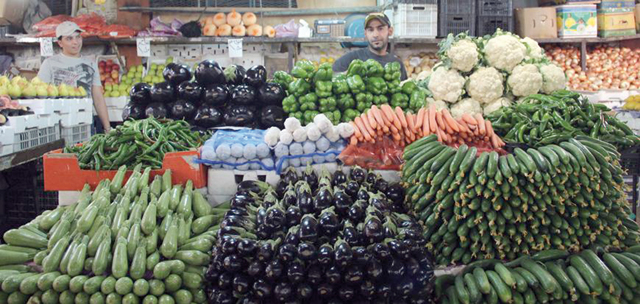AMMAN — The National Society of Consumer Protection (NSCP) called on the government to ban vegetable exports during Ramadan and set a price cap for essential food items consumed in households.
The NSCP issued a statement on Tuesday due to what they called “unfair” price increase for food items that are essential for any household during Ramadan, as reported by the Jordan News Agency, Petra.
“The prices of some of some vegetables like tomatoes, cauliflower and eggplants, as well as eggs have increased,” the statement noted.
The statement added that the price of tomatoes increased during the first two days of Ramadan by 12.5 per cent.
“Prices are high and do not match the purchasing power of Jordanians, therefore, the government is urged to take immediate action for the unjustified price increase,” the statement added.
The statement also said that the price cap of chicken, which is already high, is being violated.
The NSCP urged the government to tighten control over all markets in the Kingdom “without exception” and impose the harshest penalties on violators.
The statement added that the government’s decision to reduce the general sales tax on soybean to 5 per cent, since it is used in the manufacturing of chicken feed, should be accompanied by a review of the price cap set by the government.
Meanwhile, Abdel Shakour Jamjoum, president of Chicken and Feed Investors’ Association, told The Jordan Times that the reduction in soybean tax does not benefit the sector.
He also added that during the past week, the local consumption of poultry exceeded chicken farms’ supply capacity.
